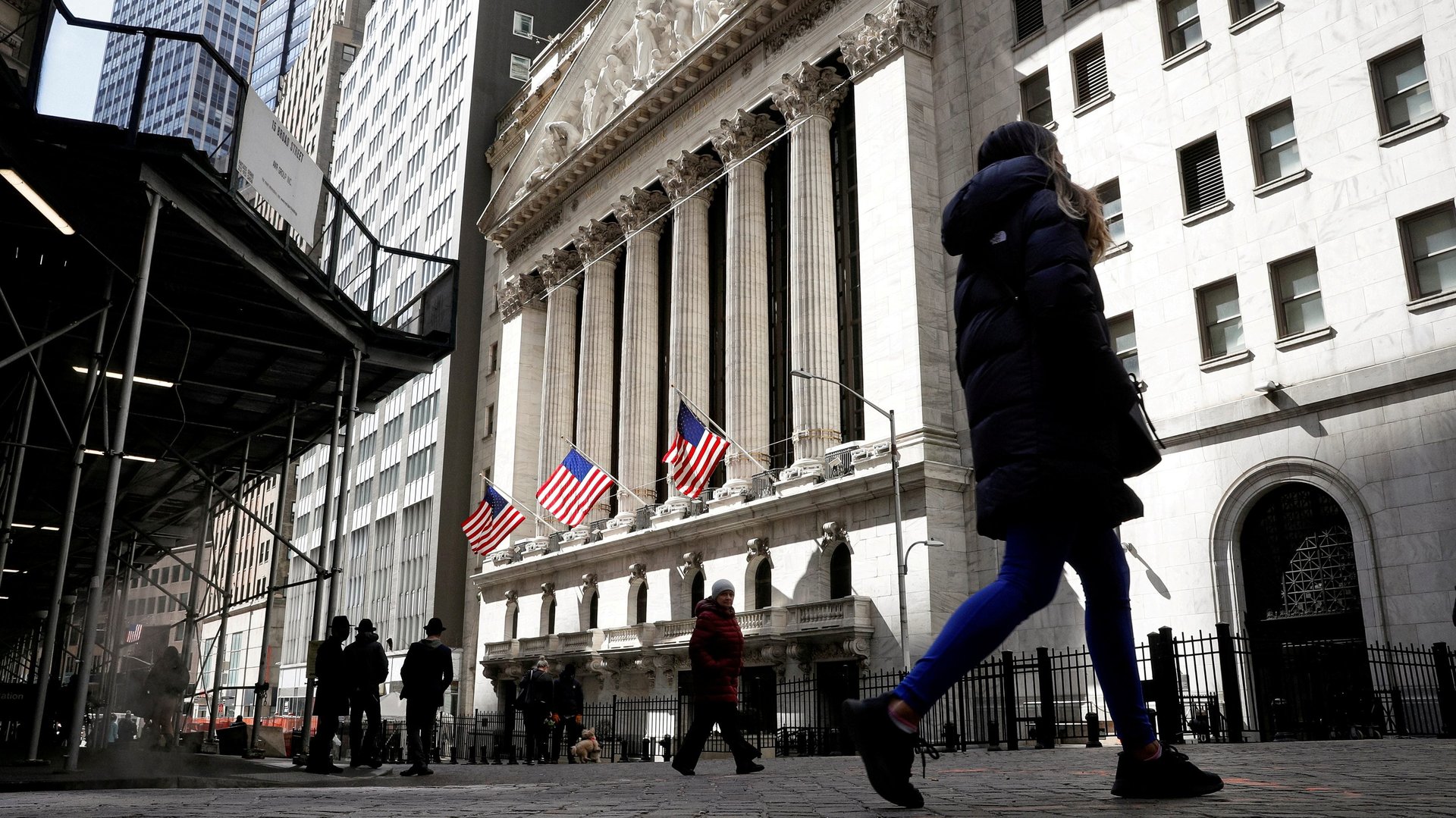Bitcoin closed in on a record high after a US bitcoin ETF started trading
Bitcoin prices climbed toward a record high after the first US exchange-traded fund for the digital asset started trading.


Bitcoin prices climbed toward a record high after the first US exchange-traded fund for the digital asset started trading.
The original crypto token touched $63,522.50, according to Coinbase, the largest US crypto exchange. That’s a whisper from the record intraday high of $64,863.10 on April 14, the day Coinbase itself went public on the Nasdaq exchange.
Why is bitcoin going up today?
Bitcoin and a number of its crypto cousins rallied after a bitcoin ETF run by ProShares under the ticker “BITO” started changing hands on the New York Stock Exchange. While bitcoin ETFs are available in Canada and Europe, the ProShares fund marks the end of an eight-year journey to get a bitcoin ETF listed on a US exchange. Some may see the listing as moment of legitimization for the crypto sphere, as it makes it easier for regular people and institutional investors to access bitcoin on tried-and-tested financial infrastructure.
Bets that such watershed events would drive lasting bitcoin rallies have proven short lived in the past. But in the meantime, several other bitcoin ETFs are waiting in the wings to hit the US market in the coming weeks.
Bitcoin futures ETF has one of the most popular starts on record
The first US ETF for bitcoin got off a fast start. With more than $625 million of intra-day trading volume, the ProShares fund ranks as one of the most popular ETF launches on record, according to ETF.com. Almost all of the trades have been relatively small, according to Eric Balchunas, senior ETF analyst at Bloomberg Intelligence, a sign that the buying and selling has mostly come from retail investors so far.
The debut comes after Securities and Exchange Commission chairman Gary Gensler signaled during the summer that the agency was open to an ETF tied to CME Group’s bitcoin futures, which allow traders to hedge or bet on bitcoin prices at some later date. The ETF was filed under the Investment Company Act of 1940, which Gensler has said helps provide “significant” protection for investors.
Gensler is amenable to an ETF that buys crypto futures, rather than actual bitcoin, because those derivatives have been regulated by the the Commodity Futures Trading Commission since late 2017. It also avoids the risk of the fund having to hold actual bitcoin. While safeguards for digital assets have become more robust in recent years, it’s not unheard of for crypto exchanges to get hacked, and Gensler has said that custody (keeping a customer’s assets safe) is an area where the SEC ramp up protections. Bitcoin futures, by contrast, are derivatives linked to index prices. The funds don’t directly store virtual assets.